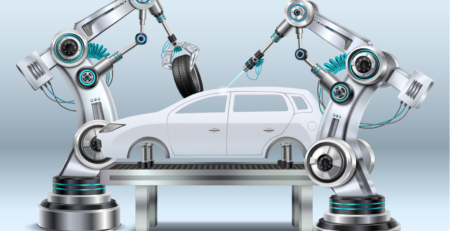Model based Engineering & Design for FCEV – Design, Analytics & Optimization in MDOX
Abdul Samath – Embedded Team
In the global initiative to establish eco- friendly environments and attain decarbonization, companies are increasingly prioritizing innovative approaches to reduce carbon emissions. The automotive sector is at the forefront of this shift as fundamental perspectives on environmentally sustainable vehicles are undergoing a transformation. Notably, the commercial vehicle market is spearheading this change, actively seeking alternative fuels to achieve the objective of carbon neutrality.
Prominent automobile manufacturers such as Mercedes-Benz, Toyota, and Volvo have emerged as pioneers in adopting fuel cell technology. Several corporations are making substantial investments to develop and incorporate fuel cell-based electric vehicles into their product ranges.Fuel cells represent a significant step toward environmentally friendly transportation, utilizing hydrogen to generate energy and emitting only water vapor as waste. Industries are employing innovative technologies to expedite this transformation while improving product development operations. The current generation of technologies is significantly hastening the product manufacturing life cycle, relying on data science and model-based system engineering.

With the use of these instruments, the automotive industry can enhance vehicle designs for increased efficiency and compliance with strict environmental regulations. By incorporating datadriven approaches, decision-making becomes more informed and efficient, leading to the design of every vehicle part with sustainability and efficiency in mind.
The automobile industry is undergoing a revolutionary period marked by the convergence of modern engineering techniques, fuel cell technology, and decarbonization activities. This allencompassing strategy emphasizes the importance of technology in fostering a sustainable future while simultaneously addressing the urgent demand for ecologically friendly transportation.
An automotive engineer, a power electronics engineer, and an electrochemistry engineer collaborated at EinNel to create a model-based system engineering model using computational and mathematical techniques. They successfully built a digital twin of a fuel cell-powered electric vehicle. These models’ physics and performance were thoroughly verified against the actual test results of Fuel Cell Electric Vehicles (FCEVs), and the findings demonstrated an incredibly strong connection with real-world outcomes.
EinNel has established a unified data platform to enhance vehicle systems and performance using these mathematical models. This platform also provides system design engineers with the ability to integrate various AI and data analytics advancements in a unified environment. With this capability, the team can conduct several design explorations and ultimately identify the best concepts. At EinNel, chief scientist engineers, equipped with backgrounds in Data Science, Chemistry, and Quantum Physics, actively pioneer research related to hydrogen production, storage, transportation, and efficient fuel cell technology.










